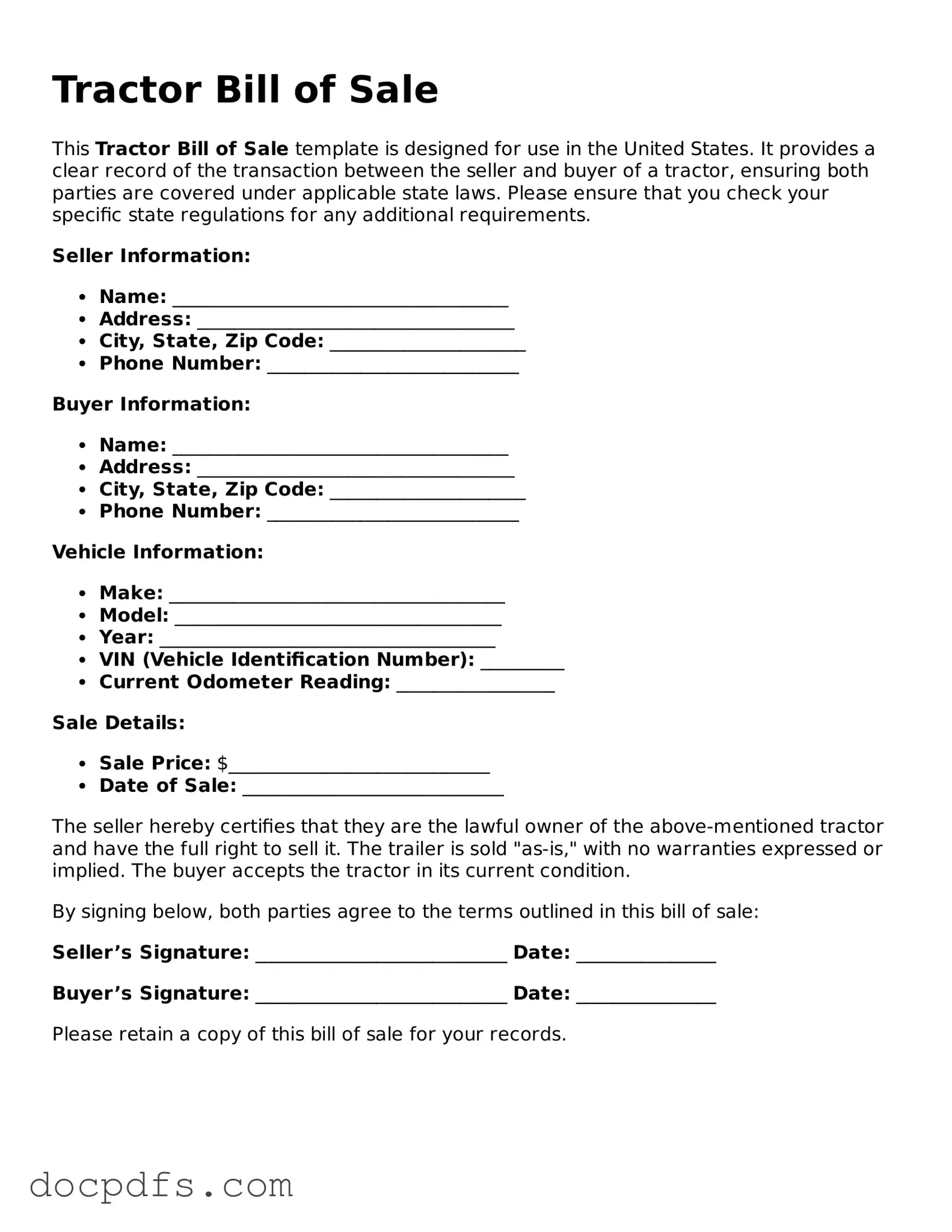Legal Tractor Bill of Sale Document
A Tractor Bill of Sale form is a legal document that records the transfer of ownership of a tractor from one party to another. This form serves as proof of the sale and includes essential details such as the buyer's and seller's information, tractor specifications, and the sale price. Properly completing this document can help prevent future disputes regarding ownership and ensure a smooth transaction.
Open Tractor Bill of Sale Editor Now

Legal Tractor Bill of Sale Document
Open Tractor Bill of Sale Editor Now

Open Tractor Bill of Sale Editor Now
or
⇓ Tractor Bill of Sale
Finish this form the fast way
Complete Tractor Bill of Sale online with a smooth editing experience.